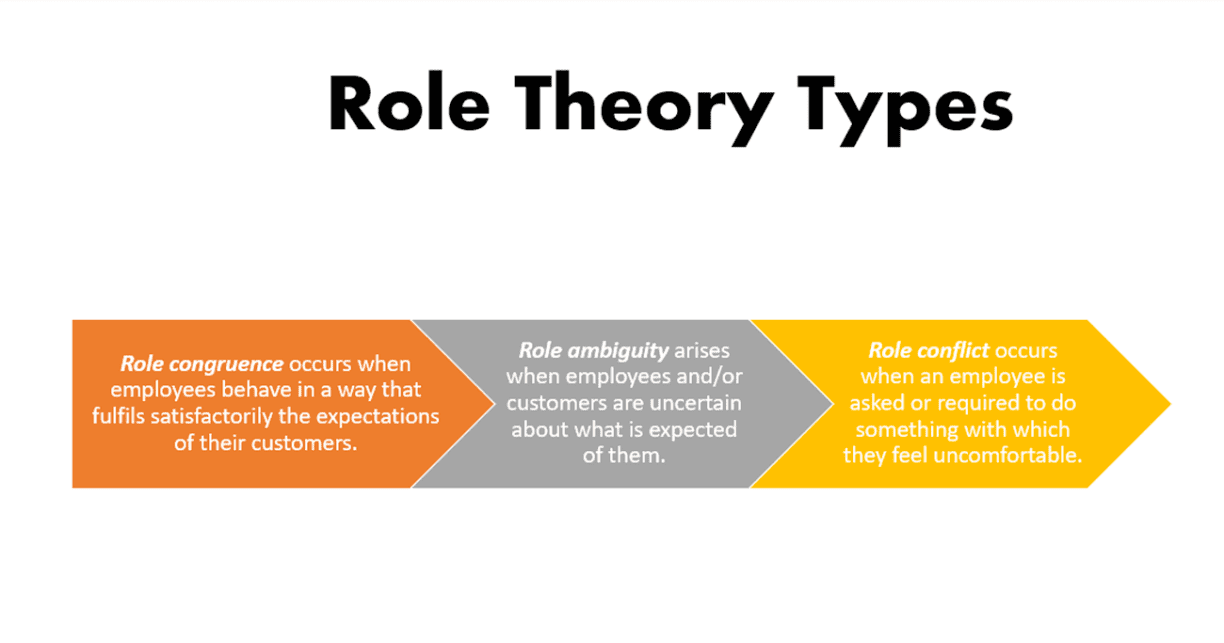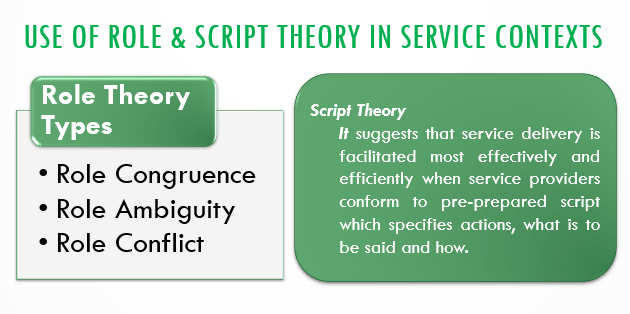Role and Script Theories serve to inform and guide behavior in service contexts.
RoleTheory
It provides a framework for understanding and defining the behavior that customers expect and feel comfortable with in different service contexts. This, in turn, bears directly on the recruitment, training and development of service personnel, especially those in high customer-contact positions, and on the behavior expected of customers as well.
Role Theory Types
- Role congruence occurs when employees behave in a way that fulfils satisfactorily the expectations of their customers, and when customers themselves feel comfortable in their role within a place and time.
- Role ambiguity arises when employees and/or customers are uncertain about what is expected of them, thereby leading to a sense of unease which may serve to disaffect in some way what is delivered and/or experienced.
- Role conflict occurs when an employee is asked or required to do something with which they feel uncomfortable, where a customer experiences behavior out of character with what they expect, or where a customer feels intimidated by the service context and uncomfortable with their own presence within it.
Script Theory
It suggests that service delivery is facilitated most effectively and efficiently when service providers conform to pre-prepared script which specifies actions, what is to be said and how. Such scripting may be highly formatted or left largely to a service provider’s discretion.
Most commonly they fall somewhere between these two extremes. Understanding the “script” influences the effectiveness of the role performance of both employees and customers.
In what ways do Role and Script Theory serve to inform the management and marketing of services?
Role Theory explains customer expectations of behavior of service providers. Therefore, service managers must learn to understand the nature of behavior expected by customers, and then aim to develop this in employees. This behavior extends to mannerisms, what is said and how, tone of voice, body language, dress, and personal grooming.
Script Theory draws attention to the importance of being prepared to deal with customer inquiries, requests, and complaints knowledgeably and efficiently. This means thinking about what customers need to know and how best to provide this information so that they do not become confused or frustrated.
Scripting also provides a useful means for controlling the behavior of service personnel, and the standard and consistency of what is communicated to customers.
Script theory has implications for the software designed to facilitate this service. The service must be ‘user-friendly’, in current computer parlance. In other words, the service must be easy to access and follow, must contain all the information likely to be required by customers.
It should have the capacity to deal with questions and inquiries and must offer a simple and straightforward ordering system. Perceived Control theory highlights the need to give the customer the sense of personal customization and control over their planning and decision-making.
At the same time, however, adequate safeguards must be built into the system to protect the service provider and their suppliers, yet in such a way that does not inhibit the user.


